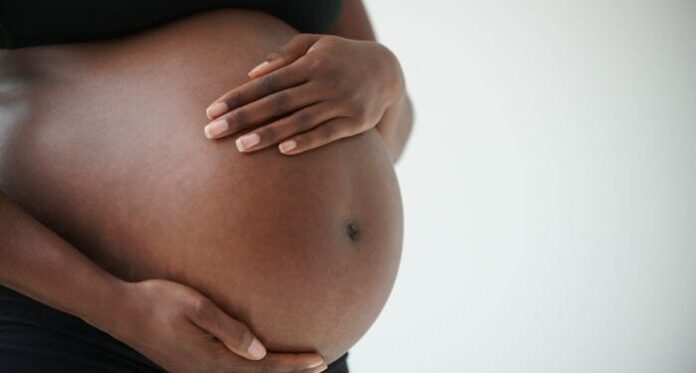Experts have advised against consuming herbal medicines, including almond fruit leaves, during pregnancy, especially in the third trimester or during labour, despite the acceptance and growing use of medicinal herbs during pregnancy.
The leaves of the almond fruit tree, also called Terminalia catappa, are used in the treatment of hypertension, diabetes, cough, jaundice, and indigestion, while the bark is used to treat diarrhoea, dysentery, and abscesses.
In a new study, the researchers showed that the aqueous leaf extract of Almond fruit trees is relatively safe for pregnant rats; it could slow or stop the contractions of the woman’s womb during pregnancy, even though it is non-toxic to the unborn baby.
The study suggests that while it can be given to women in preterm labour to attempt and postpone delivery for a few days, it should be used cautiously throughout pregnancy, particularly in the third trimester or during labour.
Herbal remedies are mostly used by women, who often take them even while pregnant. Between 7 percent and 55 percent of pregnant women use herbal medicines; this depends on the consumer’s geography, race, culture, and social standing.
Because of their components, using medicinal plants while pregnant carries a number of possible risks, such as miscarriage, early birth, contractions in the womb, or harm to the unborn child.
Studies show that exposure to medicinal plants during pregnancy accounts for just 1 percent of birth abnormalities that are present at delivery; yet, this figure is far greater than that of women who took pharmaceutical goods.
It will be crucial to assess the toxicological effects of ingesting the aqueous leaf extract of Almond fruit trees in pregnant rats in order to determine its safety for use during pregnancy, given the widespread use of herbal remedies and the ethnomedicinal significance of these trees.
For this study, researchers from Ahmadu Bello University in Zaria evaluated the toxicological profiles of the water extract of Almond fruit leaves in pregnant rats. It was in the Pan-African Medical Journal.
Fifty female virgin rats and 25 male rats at the age of two weeks (just after weaning) were involved in the study. After mating, 20 female rats with viable sperm counts were selected and divided into four groups of five rats each.
The control group received distilled water, while the treatment groups were administered aqueous leaf extract of almond fruit orally at graded doses of 100, 200, and 400 mg/kg, respectively, for 21 consecutive days.
The animals were closely observed for 24 hours and thereafter for 14 days for signs of toxicity and mortality.
Also, blood samples and internal organs like the liver, kidney, and heart were assessed, including the foetuses and the contractile effect of the extract on the muscles of the womb.
They found that there were no changes in eyes, mucous membranes, or behavioural patterns in the rats fed the extracts of the Almond fruit leaves. Similarly, no signs of trembling, convulsions, salivation, diarrhoea, sleep, or death were present.
The extract did not cause any significant difference in body weight gain or daily water intake but increased food intake when the rats were fed different amounts of the extract over 21 consecutive days of the test.
Changes in body weight, food intake, and water intake are signs used to detect the health status of animals.
Also, the extract did not cause any significant change in the animals’ unborn babies, nor did it change the number of foetuses at the different doses compared to the control group. There was no structural malformation and no foetal death recorded, meaning the leaf extract may be non-toxic to the unborn baby.
The extract inhibited the normal contraction of the uterus in a dose-dependent manner when tested on womb samples of the pregnant rats in the presence and absence of both oxytocin and misoprostol.
Similarly, oxytocin and misoprostol stimulated contractions of the womb in a dose-dependent manner. However, the contractions induced by oxytocin and misoprostol decreased in the presence of the extract.
According to the researchers, “the study showed a reasonable safety profile of the aqueous leaf extract of Almond fruit trees at a dose of 2000 mg/kg, thus suggesting that the plant chemical constituents of the extract are relatively safe, and this may be responsible for its widespread use in different ethnomedicines.
“But the results revealed that the aqueous leaf extract of Almond fruit trees is relatively safe for pregnant rats, though it has been shown to be non-toxic to the unborn baby. Additionally, the extract inhibits contractions of the womb, so it should be used with caution during pregnancy, especially in the third trimester or during labour.”
Many common medicinal plants, including spice, are already documented for their ability to induce or cause abortion.
For instance, Sida corymbosa should only be administered when the patient is already in the delivery room, as it quickly induces labour and the birth process.
Pregnant women started to believe that ingesting ginger might lessen nausea and vomiting. But some experts worry that it could raise the risk of miscarriage, especially in high doses.
Similarly, unripe and semi-ripe pawpaw, aloe vera, alligator pepper, and turmeric are to be avoided during pregnancy to avoid miscarriage and premature birth. Also, consumption of aloe vera juice during pregnancy lowers blood glucose levels, which can be potentially dangerous to the mother and baby.




